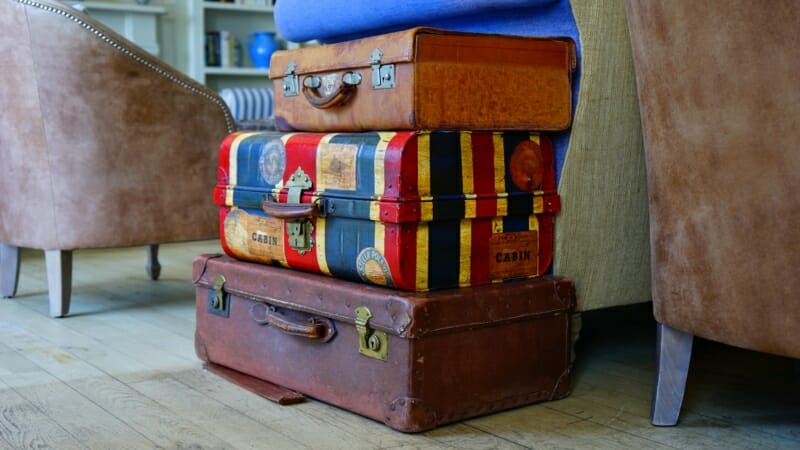Gap in the Market Volume 5 - Bleisure Travel

Eurgh. Let us start by saying that we hate it when two words are randomly combined to form a new word (that's called a 'neologism', by the way). 'British' and 'Exit' all of a sudden equals 'Brexit'; the mix of a Labrador and a Poodle is now a 'Ladbradoodle'. Horrendous. Those familiar with the travel industry will be aware of a neologism creeping into the industry. It also happens to one of the major trends of 2016: 'Bleisure' travel! Bleisure is, of course, the combination of business and leisure. Two of our favourite things now you mention it.
As part of our 'Gap in the Market' series, we've been looking at a different market sector each week, pinpointing where we think the opportunities are for ambitious travel startups. As you might have guessed by now, this week we're taking a closer look at the world of bleisure travel. Why does this sector exist? What does the future hold? And how does it shape up as an option for startups?
Why is Bleisure Travel on the Rise?
A few years ago bleisure travel didn't exist as a concept, and there certainly wasn't a market catering for it. But it has quickly begun to emerge for travelers that want to combine a business trip with some of the more traditional aspects of a vacation. While it might seem like a niche trend, studies suggest that it goes much deeper than that, that bleisure travel is more widespread than you might think. For that reason, it could be a lucrative opportunity for newcomers to the travel scene.
There are a few reasons why bleisure travel is becoming increasingly popular.
First up, despite all of the latest tech trends and advances in the way we work, working hours are, if anything, growing longer. This means that stress and exhaustion are genuine prospects facing many employees. Add in the strains of travel, and you've got enough stress to give someone a heart attack. Understandably, people might want to take the edge off and avoid business-only trips abroad. The best way to do this? Add a couple of days, or even a single activity, which aren't dedicated to business.
Second, sometimes it can work out cheaper to extend a trip. This might sound counter-intuitive, but flights are often cheaper outside of peak travel times, making it worth your while to stick around in a location once the work is done.
On top of this, some employers are actively encouraging workers to extend business trips. Many also allow the family to tag along, in a move that supposedly kills two birds with one stone. Holiday days are used more efficiently, and people get to spend more time with loved ones while the company picks up the outward flight - everyone's a winner.
According to a 2014 BridgeStreet Global Hospitality report, 60% of travelers reported having taken bleisure trips, with 30% adding at least two additional days to their trip. The reasons? Well, among them were the fact that it helps them work more effectively; the stress it takes out of business travel, and the way it keeps them more relaxed while away from home. There’s also the added benefit of more quality time with the people that really matter (family, not clients).
Bleisure Travel - The Statistics
According to the BridgeStreet survey referenced above, bleisure travelers are split evenly between male and female, and most fall into the 45 to 54-year-old age group. Interestingly, the second largest group was 25- to 35-year-olds, suggesting that the younger working generation may be growing accustomed to the idea of working on the move and mixing business with pleasure.
It's not just the age groups that are positive, it's the popularity of the concept, too. 60 percent of BridgeStreet respondents were more likely to take a bleisure trip now than they were five years ago. This trend was even higher among younger business travelers.
And what about the purpose of bleisure travel for those who partake in it? Why do they seek more time at a given destination? Well, 94% stated that gaining cultural experiences and exploring the cities they travel to are the biggest reasons.
On top of that, almost 55% now bring family members with them. Around 29% said they haven’t yet, but would like to or are planning to.
It's clear that there is a desire, both from employers and employees, to make bleisure travel a more common occurrence. According to the 2015 GBTA Business Traveler Sentiment Index, 67% of travelers say it’s important to have the chance to extend business trips for leisure; 36% of those surveyed had done so within the last three months.

Opportunities for travel startups
Clearly this is a niche sector with plenty of avenues startups can explore. The key for agencies will be coming up with unique solutions that will cater for those who want to work on the move and mix both business and pleasure. This could come down to something as simple as organising niche activities and trips suited to professionals travelling alone or with their families.
Bleisure travelers open up a window of opportunity, as there will be an undoubted increase in revenues from business travelers extending stays or bringing their families along.
The smart brands are those that can design products and services for our blurred lifestyles and also help us to compartmentalise when needed" - Miriam Rayman, Cultural Intelligence Strategist, Skift
Changing the way we do business conferences?
Conferences take place all over the world and across every industry you can imagine. For many reasons, it's in the interests of those organising these events to consider how to help attendees do more than just attend. Why not help them take on the role of bleisure traveler and increase revenues in the process?
One option, as laid out by Associations Now, is to offer packaged pre- or post-conference tours of the conference destination For example, after the International Fruit Tree Association’s 2016 Annual Conference in February, many attendees went on an extended three-day tour dedicated to lower Michigan’s fruit agricultural industry. Again here we see the convergence of business and leisure, as while there was plenty of wine and fruit tasted, you can bet that there was a lot of networking going on as well. Later this month, the International Big History Association is offering a post-conference tour: a 10-day “Taste of Europe” where travelers will visit Alpine Europe and see sights like the Jungfraujoch summit in Switzerland. It's an easy way to improve the welfare of business travellers, while offering them genuine value and supporting local businesses at the same time.
How Travelshift can help you do bleisure
Here at Travelshift we make awesome software that helps startups break into the travel industry. Our marketplace platform has already seen incredible success in the world of Icelandic tourism, and we're confident that it can be applied to almost any travel niche you can think of.
With built-in SEO features, reservation and inventory systems, content marketing capabilities, a blogging platform, and much more; it's safe to say we've done most of the hard work for you. All you have to do is target a niche, aggregate suppliers, and invite them to set up in your marketplace. Contact us today to find out more and we can get the ball rolling.